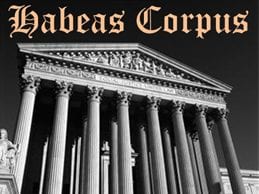Federal Habeas Corpus Grant of Relief! Grueninger v. Director, VOD, No. 14-7072 (4th Circuit), filed 2/9/16.
Incredible work by the outstanding firm Skadden Arps with an exceedingly difficult set of facts. Petitioner was arrested for sexually abusing his child. During his first interview, he asserted his right to speak to a lawyer. Three days later, that same investigator returned to the detention center to serve him with additional warrants. He again interviewed petitioner without his lawyer present. During this second interview, the petitioner confessed to the crimes.
Petitioner argued on collateral review that his lawyer’s failure to move to suppress the confession under Edwards v. Arizona, 451 U.S.477 (1981) (cops do not get to interview subjects once they have asserted their rights to an attorney!), rendered his performance ineffective. The Virginia state court rejected that argument claiming the interview was not an “interrogation” for Edwards purposes. The Virginia Supreme Court declined to review the claim. The Fourth Circuit found this conclusion to be objectively unreasonable under the highly deferential standard under 28 U.S.C. Section 2254(d). But as federal habeas practitioners realize, that’s only half of the game. The Fourth Circuit further found that there was a reasonable probability that the outcome of his trial would have been different as to the sexual abuse charges (although not the child porn charges) without this legal error. This additional finding of prejudice provides the petitioner with the right to a new trial on the abuse charges.
Here is the interesting federal habeas twist on the case– The circuit court rendered an opinion; the Virginia Supreme Court summarily denied review of the claim. The Fourth Circuit applied the reasoning of Brumfield v. Cain, 135 S.Ct. 2269 (2015) and Ylst v. Nunnemaker, 501 U.S. 797 (1991) and “looked through” the Virginia Supreme Court’s summary denial and addressed the Circuit Court’s decision. The Commonwealth argued against that. Its position was that, under Harrington v. Richter, 562 U.S. 86 (2011) an unexplained state supreme court judgment may be disturbed only if there is “no reasonable basis for a state court to deny relief.” The Commonwealth argued that the burden was on petitioner to show that any hypothetical ground for denying his claim, whether or not addressed by the Circuit Court, would be objectively reasonable. The Fourth Circuit rejected that argument because there was a reasoned opinion in existence it this case. In Richter, for example, the United States Supreme Court addressed the situation where a state habeas petition was directly presented to the state Supreme Court in its original jurisdiction, and that court summarily denied review. In that case, there was no reasoned lower court opinion. In those circumstances, a federal habeas petitioner must show that there was “no reasonable basis for the state court to deny relief,” id. at 98, and that a federal habeas court would have to defer to any reasonable “arguments or theories . . . [that] could have supported the state court’s decision.” Id. at 102. So, because the Virginia Supreme Court could have reviewed the circuit court decision, but chose not to, it effectively “endorsed the reasoning” of that claim, and the Fourth Circuit is free to assess it against the standards of §2254.
After this, the Court conducted a straight ahead analysis of Edwards and Strickland to the facts of this case. Despite all this, petitioner will still remain incarcerated. This decision only affects the abuse charges, which will need to be retried (and without the benefit of the second statement). As to the pornography charges, petitioner is still serving a sentence of 55 years, suspended on the service of 14.

